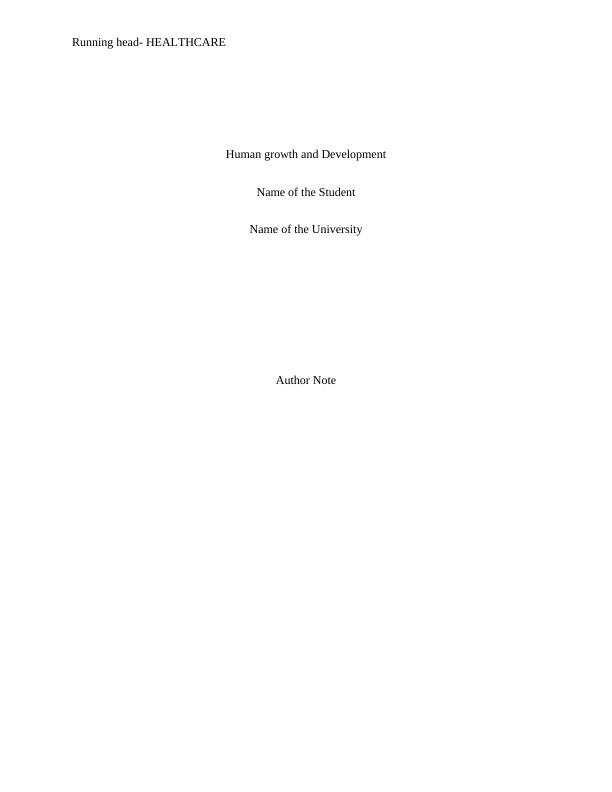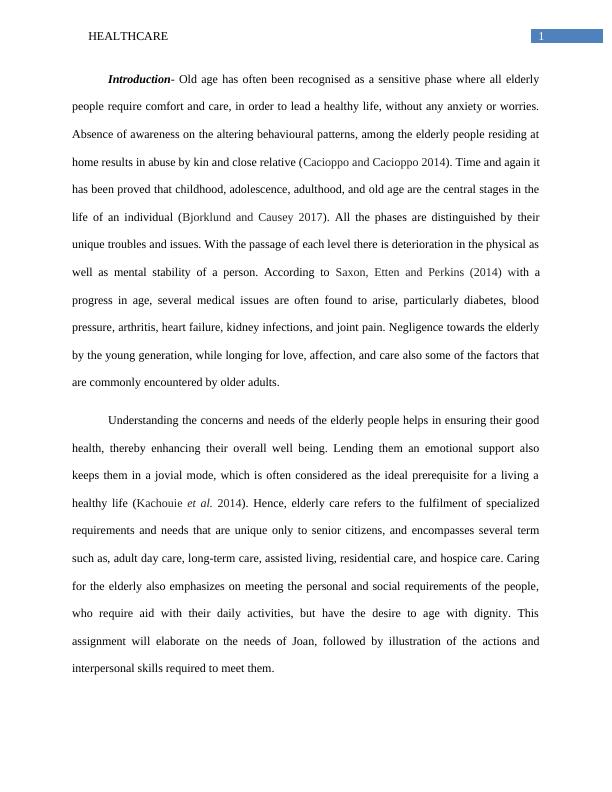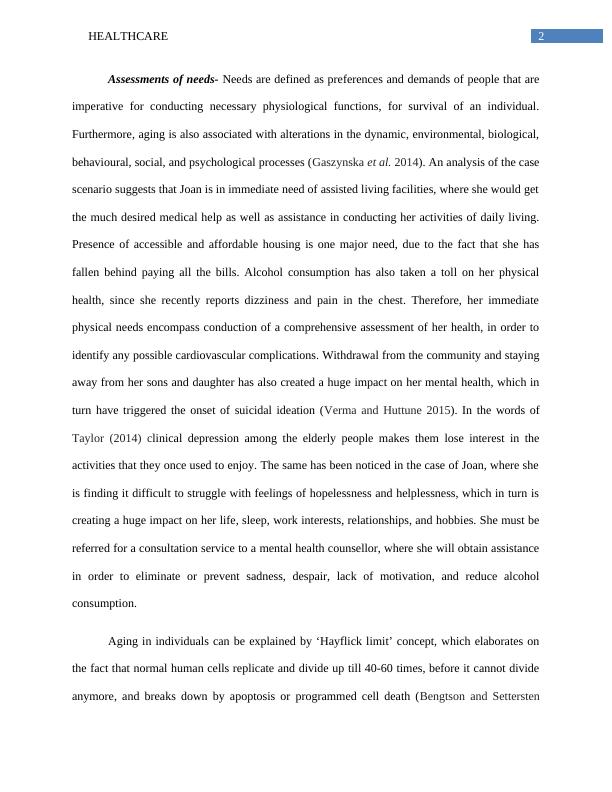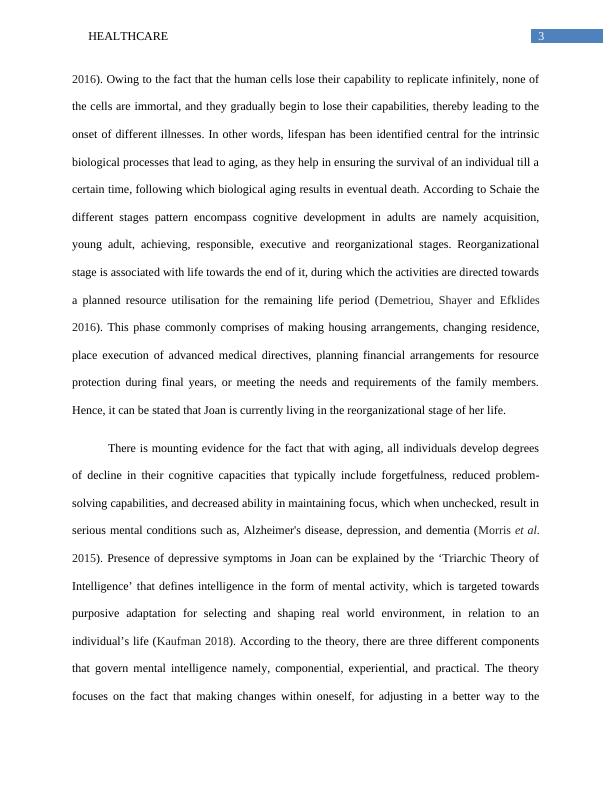Assessing the Needs of Elderly People: A Case Study of Joan
Research the care needs of an adult in a care setting, based on a case study of Joan, a fifty-five-year-old widow who is experiencing low mood and drinking at home following her husband's death. Identify needs being met and those not being met, and suggest a course of action to meet the client's needs.
13 Pages3720 Words159 Views
Added on 2023-04-23
About This Document
This assignment elaborates on the needs of Joan, followed by illustration of the actions and interpersonal skills required to meet them. It also discusses the appropriate strategies and interpersonal skills required to communicate with elderly people.
Assessing the Needs of Elderly People: A Case Study of Joan
Research the care needs of an adult in a care setting, based on a case study of Joan, a fifty-five-year-old widow who is experiencing low mood and drinking at home following her husband's death. Identify needs being met and those not being met, and suggest a course of action to meet the client's needs.
Added on 2023-04-23
ShareRelated Documents
End of preview
Want to access all the pages? Upload your documents or become a member.
The Case Study on Nursing Assignment
|5
|938
|42
Aging and Person Centered Care
|17
|3409
|88
Reflection on the Quality of Physical and Mental Health Research Paper 2022
|13
|2500
|20
Impact of Age-Related Changes on Functional Decline in Elderly: A Case Study of Marion
|8
|2626
|229
Critical Reflection on Practice: Mental Health Wellbeing and Dementia
|5
|1606
|153
Primary Healthcare Services for Older People
|2
|1259
|27




